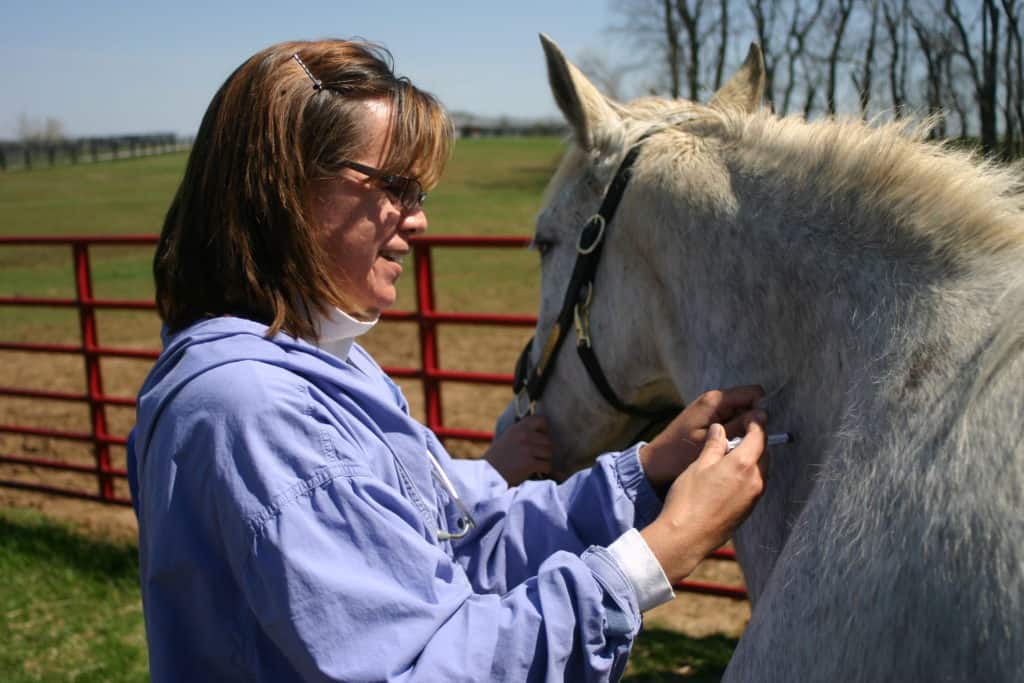
AAEP Updates Vaccination Guidelines
The guidelines make new recommendations for core and risk-based vaccines for horses. The committee further emphasizes that routine vaccinations are considered essential during the COVID-19 pandemic.

The guidelines make new recommendations for core and risk-based vaccines for horses. The committee further emphasizes that routine vaccinations are considered essential during the COVID-19 pandemic.

Rabies is a concern when horses are bitten by unknown animals. Find out how to protect your horse.

The 20-month-old colt from rural Cape May County had been treated at a referral facility and was tested for rabies because he showed neurologic symptoms.

Dr. Jacquelin Boggs shares why horses need a rabies vaccine every year and how long vaccines protect horses in general.

Dr. Elizabeth Davis explains how experts selected the vaccines every horse should receive.

Learn about the core vaccines recommended by the American Association of Equine Practitioners and the five deadly diseases they prevent.

Confirmed diseases include equine influenza, equine herpesvirus, piroplasmosis, salmonellosis, rabies, and more.

Routine horse vaccinations are one of the easiest and most efficient ways to protect equids’ health against potentially fatal infectious diseases.

Rabies is a zoonotic (capable of being transmitted from animals to humans) disease that is distributed nearly worldwide. Attention to the disease is primarily focused on preventive and control strategies.

West Nile virus and Eastern equine encephalitis have high mortality rates in exposed, unvaccinated horses, South Carolina animal health officials said.

Horses that don’t receive annual vaccinations against the five core equine diseases could be facing serious illness or even death.

Recently Oklahoma has averaged approximately 40 cases of mosquito-borne diseases in horses per year.

Because rabies threatens both horses and the humans who handle them, the AAEP recommends rabies as one of five core vaccines every U.S. horse should receive.

Since its inception, the Unwanted Horse Veterinary Relief Campaign (UHVRC) has delivered more than 28,000 doses of core vaccines.

State animal health officials are encouraging horse owners to have their animals vaccinated against mosquito-borne diseases–including Eastern equine encephalomyelitis and West Nile virus–and rabies.

A Texas veterinarian recalls a real-life equine rabies fatality and what he learned from the case.
Stay on top of the most recent Horse Health news with
"*" indicates required fields